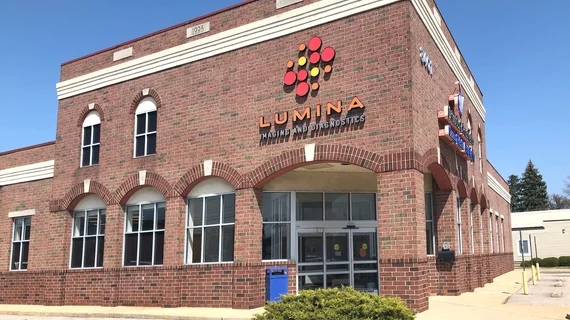Hospital system seeks to scale imaging chain offering scans at up to 70% below traditional pricing
A health system is seeking to scale its chain of imaging centers that purportedly offer scans at upward of 70% below the cost of traditional hospital-based radiology services. The move appears to be a counterpunch to freestanding centers that have for years been shifting patient volumes away from costlier hospital settings.
Cleveland-based MetroHealth first created its Lumina brand to answer the question: “Why are MRI and CT scans so expensive and difficult to schedule?” The offshoot currently has three locations in Ohio, offering an “exceptional consumer experience at a fraction of the cost.” But the four-hospital system is now eyeing rapid expansion via a franchise model.
The company recently inked a value partnership with an imaging equipment manufacturer to standardize technology at its locations, leaders said Monday.
“We know what we have created in Lumina is special. It provides value to the patient, the referring provider and the payer. Now with this partnership we can rapidly scale this model,” Julie Jacono, MBA, MetroHealth’s executive VP and chief strategy and innovation officer, said April 24. “As a health system, we knew that the best way to transform care is through partnerships with trusted health systems. The franchise model enables health systems like MetroHealth to have a turn-key solution for retail imaging in their markets…”
MetroHealth first launched the Lumina chain in 2019 and said at the time that its service area could support upward of 15 such facilities. The centers operate on an appointment-only basis with lower overhead than traditional hospital-based imaging, the Cleveland Plain Dealer reported at the time.
“This is not your typical drive-by radiology practice,” Akram Boutros, MD, the system’s former CEO, who has since been terminated, told the newspaper. “The difference is, for most of these centers, they’re not designed for efficiency and service and quality of the equipment, the quality of the subspecialty reads is not there.”
MetroHealth started off with a testing phase for the business model and it appears to be working, as the organization is now seeking rapid expansion.
“We don’t see any reason why this could not catch on and disrupt healthcare across the United States whether we’re the people who do it or not,” Boutros said at the time.
Lumina currently has outposts in Mentor, Medina and Solon, while a fourth is on the way in Westlake, slated to open in May. Future sites will have the option to operate either under MetroHealth’s own corporate ownership or as franchised offshoots. The locations also offer “minimal to no wait times,” check-in via a mobile app and viewable radiology reports within 24 hours after their appointment.
About a year ago, MetroHealth named radiologist Vikas Jain, MD, as Lumina’s new medical director. He expressed excitement about the business model at the time.
“I came to work for Lumina because they are committed to making imaging more human,” Jain said last year. “Lumina is the future of medical imaging because we manage to combine all the tools you would find in a hospital with an elevated patient experience.”
“I have found in my 20-year career as a radiologist that visiting a hospital for outpatient diagnostic imaging is generally not a pleasant patient experience,” he added later. “You have to find parking, navigate a hospital and wait—all of which can be overwhelming for people and perhaps discourage them from seeking imaging or screening.”

